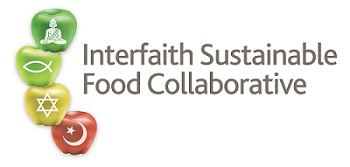Interfaith Sustainable Food Collaborative

Service Area
San Francisco Bay Area-
On the Web
Website Facebook -
Contact this Project
The challenge:
Food-insecure and low-income Americans face universal challenges in trying to be healthy, including more sedentary lifestyles (particularly for seniors) and increased portion size and proliferation of fast food. They also face additional challenges. Low-income neighborhoods often lack full-service grocery stores and farmers’ markets where they can buy fruit, vegetables, grains, and low-fat dairy products. They are also less likely to have and use their own vehicles for food shopping, so food choices may be limited to what they can carry. When low-income residents are able to access healthy food, it can be more expensive, or may be of poorer quality because of a lack of supply and demand.

What can be done?
In recent years, several initiatives among religious denominations at the national level have highlighted the connection between the food system, spirituality, and social justice. Many creative programs have blossomed from these efforts. However, the diverse application of congregational-level projects has not been shared in a way that facilitates development of new projects across the faith spectrum.
How ISFC is meeting the challenge:
The Interfaith Sustainable Food Collaborative (ISFC) is focused on building a more sustainable food system in the San Francisco Bay Area by leveraging faith-based communities as key resources to help their members and other local residents access healthy, sustainably grown, local food. ISFC provides resources to help committed congregations expand their work, as well as facilitates policy activism by connecting congregations to educational resources and timely advocacy opportunities. ISFC has been actively engaged in bringing community supported agriculture (CSA) programs to faith-based communities to provide members with vegetables, fruit, and dairy and also ensuring that seniors and other SNAP recipients can easily access their benefits through the faith-based institutions that they trust.




